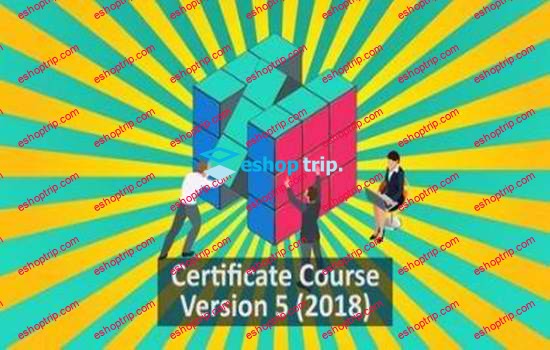Published 11/2024
MP4 | Video: h264, 1920×1080 | Audio: AAC, 44.1 KHz
Language: English | Size: 9.95 GB | Duration: 8h 39m
Master the art of project scheduling and time management to deliver projects on time, every time!
What you’ll learn
Core concepts and processes of project schedule management.
How to define, sequence, and organize project activities.
Techniques for estimating activity resources and durations.
Tools for developing and optimizing project schedules, including the Critical Path and Critical Chain methods.
Methods for compressing schedules and managing project timelines.
Best practices for monitoring, controlling, and updating project schedules.
How to use Gantt charts, bar charts, and schedule diagrams for effective project control.
Requirements
Basic understanding of project management principles. Familiarity with project management tools (e.g., Microsoft Project, Primavera) is helpful but not required. No prior experience in schedule management is necessary.
Description
Managing project schedules effectively is one of the most critical aspects of successful project management. This comprehensive course, Mastering Project Schedule Management, is designed to provide you with a deep understanding of the processes, tools, and techniques essential for planning, developing, and controlling project schedules. Whether you’re a project manager, team lead, or aspiring project professional, this course will equip you with the knowledge to optimize your project timelines, enhance resource allocation, and ensure timely project delivery.Section 1: Introduction to Project Schedule ManagementWe begin with an overview of project schedule management, emphasizing the importance of planning and managing schedules effectively. You’ll learn about the core concepts and processes involved in schedule management, setting the foundation for the rest of the course. The section also covers the initial steps of planning schedule management, including its outputs and tools, to ensure a structured approach to scheduling.Section 2: Defining and Sequencing ActivitiesThis section focuses on the key steps of defining and sequencing project activities. You’ll learn how to break down project work into manageable tasks and organize them in a logical sequence. Topics include activity definition, sequence activities, and the Precedence Diagramming Method (PDM). We’ll also explore tools like dependency determination, leads and lags, and the creation of project schedule network diagrams.Section 3: Estimating Resources and Activity DurationEffective time management requires accurate estimation of resources and activity durations. This section covers various estimation techniques, such as Analog Estimating, Three-Point Estimating, and Reserve Analysis. You’ll also learn about resource optimization techniques and how to apply them to create realistic schedules that align with project goals.Section 4: Developing the Project ScheduleHere, we dive deep into the development of a detailed project schedule. You’ll gain hands-on experience with tools and techniques like the Critical Path Method (CPM) and Critical Chain Method (CCM), which are vital for optimizing project timelines. We’ll explore how to determine float, calculate early and late start/finish times, and utilize schedule compression techniques like crashing to meet project deadlines.Section 5: Controlling the Project ScheduleThe final section focuses on monitoring and controlling project schedules to keep your projects on track. You’ll learn how to use schedule control tools, including Gantt charts, bar charts, and project schedule network diagrams. This section also covers methods to manage schedule changes, ensuring your projects remain aligned with organizational goals and stakeholder expectations.Conclusion:By the end of this course, you will have gained a comprehensive understanding of project schedule management. You’ll be equipped with the skills to plan, develop, and control project schedules effectively, ensuring your projects are completed on time and within scope. This course provides you with practical insights and techniques to enhance your project management capabilities, making you a valuable asset to any organization.
Overview
Section 1: Introduction to Project Schedule Management
Lecture 1 Introduction
Lecture 2 Plan Schedule Management
Lecture 3 Plan Schedule Management – Output
Lecture 4 Plan Schedule Management – Tools and Techniques
Lecture 5 Plan Schedule Management – Output
Section 2: Defining and Sequencing Activities
Lecture 6 Define Activities
Lecture 7 Define Activities – Tools and Techniques
Lecture 8 Project Time Management Part 8
Lecture 9 Define Activities – Outputs
Lecture 10 Sequence Activities
Lecture 11 Sequence Activities – Inputs
Lecture 12 Sequence Activities – Tools and Techniques
Lecture 13 Tools and Techniques – PDM Method
Lecture 14 Tools and Techniques – PDM Method Continues
Lecture 15 Tools and Techniques- Dependency Determination
Lecture 16 Tools and Techniques- Leads and Lags
Lecture 17 Sequence Activities – Outputs – Project Schedule Diagram Networks
Lecture 18 Sequence Activities – Outputs
Section 3: Estimating Resources and Activity Duration
Lecture 19 Estimate Activity Resources
Lecture 20 Estimate Activity Resources – Process Charts
Lecture 21 Estimate Activity Resources – Inputs
Lecture 22 Estimate Activity Resources – Tools and Techniques
Lecture 23 Estimate Activity Resources – Tools and Techniques, Outputs
Lecture 24 Estimate Activity Duration
Lecture 25 Estimate Activity Duration – Process Chart
Lecture 26 Estimate Activity Duration – Inputs
Lecture 27 Estimate Activity Duration – Tools and Techniques
Lecture 28 Tools and Techniques – Analog Estimating
Lecture 29 Tools and Techniques – Three Point Estimating
Lecture 30 Tools and Techniques – Three Point Estimating Continues
Lecture 31 Tools and Techniques – Reserve Analysis, Outputs
Section 4: Developing the Project Schedule
Lecture 32 Develop Schedule
Lecture 33 Develop Schedule – Process Chart
Lecture 34 Develop Schedule – Inputs
Lecture 35 Inputs – Activity Resource Requirements
Lecture 36 Inputs – Project Staff Assignment, RBS
Lecture 37 Develop Schedule – Tools and Techniques
Lecture 38 Tools and Techniques – Critical Path Method
Lecture 39 Critical Path Method Continues
Lecture 40 Critical Path Method – Critical Path Analysis
Lecture 41 Critical Path Method – Float Determination
Lecture 42 Float Determination Continues
Lecture 43 Critical Path Method – Early Start and Early Finish
Lecture 44 Critical Path Method – Late Start and Late Finish
Lecture 45 Late Start and Late Finish Continues
Lecture 46 Late Start Late Finish Calculations
Lecture 47 Critical Path Method – AOA
Lecture 48 Critical Chain Method
Lecture 49 How Critical Chain Method works
Lecture 50 Tools and Techniques – Resource Optimization Techniques
Lecture 51 Leads and Lags, Schedule Compression
Lecture 52 Crashing
Lecture 53 Crashing Example
Lecture 54 Revisiting the Develop Schedule Process Chart
Lecture 55 Develop Schedule – Outputs
Lecture 56 Outputs – Bar Charts, Gantt Charts
Lecture 57 Outputs – Project Schedule Network Diagrams
Section 5: Controlling the Project Schedule
Lecture 58 Control Schedule
Lecture 59 Control Schedule – Inputs, Tools and Techniques
Lecture 60 Control Schedule – Tools and Techniques, Outputs
Project Managers seeking to enhance their scheduling skills and deliver projects on time.,Team Leads and Supervisors looking to improve resource allocation and time management.,Aspiring Project Managers aiming to develop a strong foundation in schedule management.,PMO Professionals interested in mastering the tools and techniques for effective project scheduling.,Anyone involved in project planning, execution, or control who wants to optimize project timelines and ensure successful project outcomes.
https://anonymz.com/?https://www.udemy.com/course/project-schedule-management-tools-techniques-practices/










